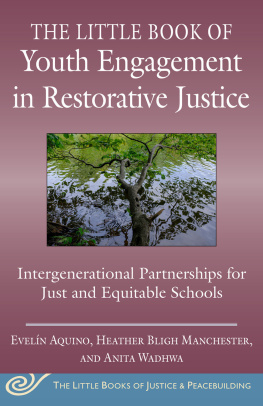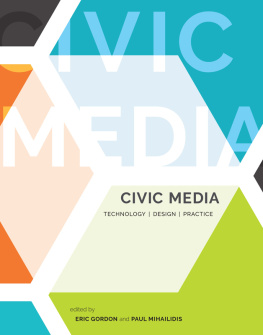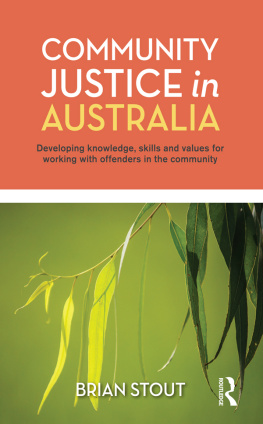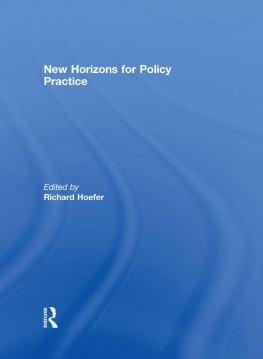
Community Practice and Urban Youth
Community Practice and Urban Youth is for graduate level students in fields that offer youth studies and community practice courses. Practitioners in these fields will find the book particularly useful in furthering the integration of social justice as a conceptual and philosophical foundation. The book focuses on service-learning and civic engagement in immigrant-rights, food, and environmental justice movements and offers an innovative approach for courses.
Melvin Delgado is Professor of Social Work at Boston University where he is the Co-Director of the Center on Addictions Research and Services. He is the author of over 20 books.
Young people almost always play instrumental roles in social justice movements, and Melvin Delgadoeasily among our most renowned scholars of youth and communityhere makes yet another exceptional contribution to our understanding of the field, drawing upon empirical evidence in three contemporary movements in society.
Dr Barry Checkoway, School of Social Work, University of Michigan
Using examples of civic engagement with diverse youth, Dr Melvin Delgado provides an innovative paradigm for environmentally focused social justice strategies aimed at promoting the engagement of urban youth in social activism and service learning.
Dr Edgar Colon, Southern Connecticut State University
First published 2016
by Routledge
711 Third Avenue, New York, NY 10017
and by Routledge
2 Park Square, Milton Park, Abingdon, Oxon, OX14 4RN
Routledge is an imprint of the Taylor & Francis Group, an informa business
2016 Taylor & Francis
The right of Melvin Delgado to be identified as author of this work has been asserted by him in accordance with sections 77 and 78 of the Copyright, Designs and Patents Act 1988.
All rights reserved. No part of this book may be reprinted or reproduced or utilized in any form or by any electronic, mechanical, or other means, now known or hereafter invented, including photocopying and recording, or in any information storage or retrieval system, without permission in writing from the publishers.
Trademark notice : Product or corporate names may be trademarks or registered trademarks, and are used only for identification and explanation without intent to infringe.
Library of Congress Cataloging-in-Publication Data
A catalog record for this book has been requested
ISBN: 978-1-138-92595-3 (hbk)
ISBN: 978-1-138-92598-4 (pbk)
ISBN: 978-1-315-68348-5 (ebk)
Typeset in Bembo
by Apex CoVantage, LLC
This book is dedicated to Denise, Barbara, and Laura.
All social intervention-focused books seek to influence readers, and this book is certainly no exception. Conventional social interventions are predicated upon a set of assumptions and values, which sometimes are implicit, and embrace a social paradigm to guide how an intervention unfolds. A re-shifting of paradigms is generally not a common goal in most books because in many instances books seek to assist practitioners in carrying out their duties rather than have them challenge the status quo.
This book introduces readers to the importance of experiential learning through two popular (as evidenced by the number of books and scholarly articles) approaches: service-learning and civic engagement. However, this book purposefully seeks to challenge the status quo and introduces a particular focus on service-learning and civic engagement among urban youth.
Any book focused on urban youth must refrain from embracing a paradigm based upon deficit or charity values and principles. Such a perspective emphasizes what is missing or wrong with youth and fails to take into account their social-ecological circumstances and the strengths that they possess. Their ability to socially navigate their way through lifes difficult terrain must never be overlooked or minimized by practitioners, policy makers, and academics.
This book eschews a negative view of youth by stressing the importance of a critical stance on service-learning and civic engagement, and focusing on three social justice issues that are highly intertwined. A critical or social justice stance necessitates that practitioners and academics view urban youth within the context that profoundly shapes their lives and surroundings. When this context is detrimental to their well-being, interventions must alter these circumstances and facilitate youth empowerment and leadership development in the process.
Social issues associated with immigrant rights, food, and environmental justice provide examples of how social forces impede youth, and the communities they live in, from maximizing their potential. Fortunately, a number of scholars and practitioners have embraced this stance; this book draws upon their contributions and, more importantly, the contributions of urban youth themselves, since they are the ultimate beneficiaries of social justice service-learning and civic engagement. This book seeks to bridge social justice, youth organizing, and service-learning/civic engagement by highlighting key concepts and approaches that can make these two popular forms of experiential learning and intervention relevant for urban youth.
Thank you to Cate Johnston. I would also like to thank the reviewers for their valuable feedback.
- Marie Weil, University of North Carolina, Chapel Hill
- Suzanne Pritzker, University of Houston, Central
- Kelly Patterson, State University of New York at Buffalo
- Kyuper College
- CSU, Northridge
- Southern Adventist University
- University of Connecticut
Section 1
Setting the Context
1
Overview
The twenty-first century ushered in a period of great excitement resulting from social justice campaignsand even, in some cases, revolutionsto rectify acts of social injustice, with youth playing instrumental roles, although this was not new in the United States nor in other countries (Aronowitz, 2013; Shragge, 2013). Social activism is boundless in what it can accomplish and only limited by adults lack of imagination in seeing youth as contributing members of society. Youth activism potential can reach from localized to national transformation efforts (Flanagan, Syvertsen & Wray-Lake, 2007; Piotrowski, 2014).
The potential of social activism involving educators and helping professionals has raised questions about how youth community practice fosters the advance of social justice as an integral part of practice, including social activism involving and led by youth (Delgado & Staples, 2007; Hardina, 2013; Staples, 2012). A variety of well-recognized avenues are open to educators and community practitioners, such as service-learning and civic engagement, to facilitate youth activism.
One example with substantial potential is youth work/critical pedagogies/youth studies. The potential role of youth-focused practice is well laid out in the following quote (Lavie-Ajayi & Krumer-Nevo, 2013, p. 1698): Critical youth work is based on a dual focus, on individual psychosocial development on the one hand, and collective critical consciousness and the promotion of social justice on the other. The model is comprised of a three dimensions: the streets as a physical and political place, the use of counter narrative, and the role the youth workers take as social capital agents.






